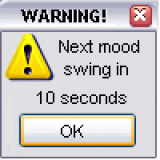Writing in Structured Forms -- lessons in the different poetry f
-
Robert Gardiner
18 years agoThis post, forum was created for established and aspiring poets to learn about and provide tutorial about some of the many different poetry forms that are out there. Post information on a form (its structure/format and and a summary of how you write a poem in that particular format), also post an example or examples of that form and any tips you might have for constructing a good poem in that format. Me personally, I like partaking of forms that are Structured, that use Repetition, Rhyme, Meter and such, also that are Stanzaic (use stanzas). I like writing in forms that have a format to them, that have stricter requirements. I like to challenge myself, as such, to see if I can not only meet the strict form requirements, but also, write well (a good poem) in that strict format. Also, I like forms like these, because such things as Rhythm, Rhyme, Repetition, and Meter have long been staples of poetry and at the base and part of the building blocks of the genre, and I want to be as proficient as I can in those essential aspects. For, the better I am at some of poetry's basics, enssential building blocks, the better I am, or will be, at poetry, and some of the forms that make use of these essential aspects is what I shall provide tutoring on.
The first form I shall start with is that last form in which I partook of writing The "Retourne".
Retourne: A Retourne is a French poetry form wherein repetition is used, employed. It consist of four quatrains (four-line stanzas), with each line having eight syllables. The trick is though that the first stanza's second line must also be the second stanza's first line, the first stanza's third line is the third stanza's first, and the first stanza's fourth line is the fourth stanza's first. Retournes can but do not have to rhyme.
(Type: Structure, Metrical Requirement, Repetitive Requirement)
Examples;
Non-rhyming Retourne:
Peruse the wide and distant sky
What gifts of glory do you see?
Perhaps a wisp of cloud appears
Or maybe sunlight streams across.
What gifts of glory do you see?
How perfect is the firmament -
A panegyric to the world
That shames the sapphire with its light.
Perhaps a wisp of cloud appears
It cannot mar the cosmic sphere
But rather complements its scope
And makes it august all the more.
Or maybe sunlight streams across
As from the dusk or coming dawn
Or clear and vibrant down from noon
To sweep the placid world below.
from; http://elfwood.lysator.liu.se/farp/thewriting/27brianforms/27brianforms.html#retourne
Rhymed Retourne:
Enchanted, is my heart, enshroud,
By you love, your beauty, divine.
I'm lifted up, amongst, the clouds.
Enraptured, is this heart, of mine.
By you love, your beauty, divine,
To heaven, each time, I'm taken.
Enamored, is my soul, with thine.
My passion, you have, awaken.
I'm lifted up, amongst, the clouds,
Whenever, your presence, I'm in.
You resound, rapture, all so loud.
Your rhapsody, I'm just, wrapped in.
Enraptured, is this heart, of mine,
By the wondrous splendor, of you.
You've captured, this being, of mine.
You, I've taken a liking to!!!
(A Retourne written by me)
I think the key to writing a Retourne is your first stanza, for that is what the poem is built form. You must choose the line therein carefully, for each line in that first stanza you must be able to build upon. You must choose lines that can be modified and expanded upon in building, composition of your subsequent stanzas.
Well that's the Retourne. More to come on other forms and feel free to post tutorials on some of the forms with which your familiar, versed.
What Form do you have to Teach Us??? -
Drew Gold
18 years agoI've taken a totally different approach to structure, combining all different kinds of style. I like rhythm, assonance and alliteration. The way I've been setting up my poems lately, is using the indents, the line/stanza breaks to augment the glow. To hit the pause. And after that I try to have a concept that beats on the lines like tribal drums. Something tangible, while still paying attention to the rhythm and content. Doing all of this is extremely hard. It took me a while to get this one just right, and it may still be wrong. But at first it wasn't structured. I just wrote down the thoughts, and later saw I could structure it to my benefit. SO here's the opposite end of the spectrum,.. (i'd post it here but the indents won't show)
http://blog.myspace.com/index.cfm?fuseaction=blog.view&friendID=97266482&blogID=171301776&MyToken=931f6823-03e6-4d09-9f4f-2a5341a939e7 -
Misstress
18 years agoRICTAMETER
A rictameter is a nine line poetry form. The 1st and last lines are the same with the syllable count as follows:
line 1 - 2 syllables - same as line 9
line 2 - 4 syllables
line 3 - 6 syllables
line 4 - 8 syllables
line 5 - 10 syllables
line 6 - 8 syllables
line 7 - 6 syllables
line 8 - 4 syllables
line 9 - 2 syllables - same as line 1
Your Eyes(RICTAMETER)
-Misstress-
Your Eyes
Like sparkling stars
Suspended in arrays
of bursting Colors in pastel
It makes me crave for letters and run free,
Yearning to change and capture them
Into poem or a song
Then my world clasp
Your Eyes
(Hope this is a good example) -
Robert Gardiner
18 years agoKYRIELLE SONNET
A Kyrielle Sonnet consists of 14 lines (three rhyming quatrain stanzas and a non-rhyming couplet). Just like the traditional Kyrielle poem, the Kyrielle Sonnet also has a repeating line or phrase as a refrain (usually appearing as the last line of each stanza). Each line within the Kyrielle Sonnet consists of only eight syllables. French poetry forms have a tendency to link back to the beginning of the poem, so common practice is to use the first and last line of the first quatrain as the ending couplet. This would also re-enforce the refrain within the poem. Therefore, a good rhyming scheme for a Kyrielle Sonnet would be:
1st stanza - AabB
2nd stanza - ccbB
3rd stanza - ddbB
4th stanza - AB
or
1st stanza - AbaB
2nd stanza - cbcB
3rd stanza - dbdB
4th stanza – AB
Examples:
Make Believe
In a realm some call Make Believe,
they promised they would never leave.
Where crystal blue waters still flow,
Fairies dance beyond the rainbow.
Elves and Unicorns join along
with magical refrains of song.
Through fresh morning dew - all aglow,
Fairies dance beyond the rainbow.
Where Spring is, always, in the air,
iridescent wings - flutter there.
Playfully, putting on a show,
Fairies dance beyond the rainbow.
In a realm some call Make Believe,
Fairies dance beyond the rainbow.
Ecstasy!!!
Rapture, is your heavenly hue.
Your presence is such jubilee.
Rhapsody, the sheer thought of you.
Nothing matches your ecstasy.
Your, sweet, enchantment, thrills me, so.
Pleasure, is your serenity.
Where you lead, I’d gladly go.
Nothing matches your ecstasy.
Your beauty is, such resplendence,
Uplifting, your mere company.
Rapturous, your very essence,
Nothing matches your ecstasy.
Rapture, is your heavenly hue.
Nothing matches your ecstasy.
Robert Gardiner
Autumn's Song *Kyrielle Sonnet
by Kim
Drift across the grains of Time
To the sway of a crystal chime
With the silver notes of the night
Dance beneath the Autumn twilight
Between the orange and red hues
That the dusk will quietly use
Take a breath of peaceful respite
Dance beneath the Autumn twilight
Hear the song so calm and yet free
The siren call of serenity
The sofest of the birds take flight
Dance beneath the Autumn twilight
Drift across the grains of Time
Dance beneath the Autumn twilight
http://www.poems-and-quotes.com/nature/poems.php?id=640576
The key with Kyrielle Sonnet I think is choosing the right repetitive line (refrain). What you have to remember in all poems where repetition is employed -- especially when you have to repeat an entire line as refrain - repeating itself throughout the poem -- is that the line has to be able to work throughout your poem and has to be able to work with the rhythm and flow of it, even when used from stanza to stanza, when placed in different areas of your poem, So in the case of the Kyrielle Sonnet, your refrain line has to work at the end of each quatrian stanza and to also work well with the first line of your poem. If you find the choose the right line as refrain, your half way to a good Kyrielle Sonnet, then it's just a matter of building around it and writing a good poem. -
Robert Gardiner
18 years agoQUATERN
A quatern has four stanzas, each of which has four lines. Each line contains eight syllables. It does not have to rhyme, but it does follow a specific pattern of line repetition: the first stanza's first line is repeated as the second stanza's second line, the third stanza's third, and the final stanza's fourth. This form originated in France.
line 1
line 2
line 3
line 4
line 5
line 6 (line 1)
line 7
line 8
line 9
line 10
line 11 (line 1)
line 12
line 13
line 14
line 15
line 16 (line 1)
Example:
Enough of somber, grim attire!
No longer will I dress in black
To greet events which should be glad
Why be so formal? Let it go!
A wedding is a time of joy
No longer will I dress in black!
Why bundle in hot stuffy clothes?
Are T-shirts wrong? Are blue jeans bad?
The Reaper comes arrayed in black
Now truly, can we follow suit
To greet events which should be glad?
Why, Death himself is no such fool!
Tuxedos are for penguins best
And darkness fits the raven well
But we, unfeathered as we are
Why be so formal? Let it go!
Aphrodite, bliss, be thy name!!!
Aphrodite, bliss, be thy name,
Splendid, is your beauty, divine,
Singing, in such a, sweet, refrain,
Captivating, this heart of mine.
Rapture Goddess, I do proclaim,
Aphrodite, bliss, be thy name,
Even, the Gods, are charmed, by you.
The Gods and men, both, you seduce.
Divine Goddess, you mesmerize.
Your beauty burns, an endless flame.
Aphrodite, bliss, be thy name,
Enchantment, magic, you comprise.
By you, great pleasure is bestowed.
Grand, the beauty, by you, bellowed.
The word, lovely, you do, exclaim.
Aphrodite, bliss, be thy name...
Robert Gardiner
The key here as with most refrain poems is choosing the right repetitive line -- the right refrain. That line has to be able to work throughout your poem and with the rhythm and flow of it. You have to choose a line (refrain) that functional and can be built around but that is also moveable -that can be dispersed in different spots throughout your poem. Your refrain line is your base and must be chosen well. It can and make or break your poem. If you choose a good line, you're well on your way to a good poem. If you choose a bad line, your poem will be just that, bad. -
xXSomeoneLoveMeXx
18 years agocan you please go to looking for a poem and read the Please Help or the first one. thanks i need some help
-
-
Choose xX Alex Xx Life
18 years ago:P
-
Italian Stallion
18 years agoBump
-
Robert Gardiner
18 years agoTERZA RIMA
Terza rima is a fairly simple verse form developed in Italy. It contains an unlimited number of three-line stanzas (called "tercets") with the rhyming pattern aba bcb cdc ded efe... Each tercet's middle line gives the rhyme for the first and last lines of the next tercet. The last tercet's middle line provides the rhyme for a final stanza containing either a single line or a couplet.
Although no specific line length is required, most terza rima poems in English are written in iambic pentameter.
Acquainted With the Night by Robert Frost
I have been one acquainted with the night. (a)
I have walked out in rain—and back in rain. (b)
I have outwalked the furthest city light. (a)
I have looked down the saddest city lane. (b)
I have passed by the watchman on his beat (c)
And dropped my eyes, unwilling to explain. (b)
I have stood still and stopped the sound of feet (c)
When far away an interrupted cry (d)
Came over houses from another street, (c)
But not to call me back or say good-by; (d)
And further still at an unearthly height (e)
One luminary clock against the sky (d)
Proclaimed the time was neither wrong nor right. (e)
I have been one acquainted with the night. (e)
Ode to the West Wind
WILD West Wind, thou breath of Autumn's being, (a)
Thou, from whose unseen presence the leaves dead (b)
Are driven, like ghosts from an enchanter fleeing, (a)
Yellow, and black, and pale, and hectic red, (b)
Pestilence-stricken multitudes: O thou, (c)
Who chariotest to their dark wintry bed (b)
The wingèd seeds, where they lie cold and low, (c)
Each like a corpse within its grave, until (d)
Thine azure sister of the spring shall blow (c)
Her clarion o'er the dreaming earth, and fill (d)
(Driving sweet buds like flocks to feed in air) (e)
With living hues and odors plain and hill: (d)
Wild Spirit, which art moving everywhere; (e)
Destroyer and preserver; hear, oh, hear! (e)
II.
Thou on whose stream, 'mid the steep sky's commotion,
Loose clouds like earth's decaying leaves are shed,
Shook from the tangled boughs of Heaven and Ocean,
Angels of rain and lightning: there are spread
On the blue surface of thine airy surge,
Like the bright hair uplifted from the head
Of some fierce Mænad, even from the dim verge
Of the horizon to the zenith's height,
The locks of the approaching storm. Thou dirge
Of the dying year, to which this closing night
Will be the dome of a vast sepulchre,
Vaulted with all thy congregated might
Of vapors, from whose solid atmosphere
Black rain, and fire, and hail, will burst: oh hear!
III.
Thou who didst waken from his summer dreams
The blue Mediterranean, where he lay,
Lulled by the coil of his crystalline streams,
Beside a pumice isle in Baiæ's bay,
And saw in sleep old palaces and towers
Quivering within the wave's intenser day,
All overgrown with azure moss and flowers
So sweet, the sense faints picturing them! Thou
For whose path the Atlantic's level powers
Cleave themselves into chasms, while far below
The sea-blooms and the oozy woods which wear
The sapless foliage of the ocean, know
Thy voice, and suddenly grow gray with fear,
And tremble and despoil themselves: oh, hear!
IV.
If I were a dead leaf thou mightest bear;
If I were a swift cloud to fly with thee;
A wave to pant beneath thy power, and share
The impulse of thy strength, only less free
Than thou, O uncontrollable! if even
I were as in my boyhood, and could be
The comrade of thy wanderings over heaven,
As then, when to outstrip thy skyey speed
Scarce seemed a vision; I would ne'er have striven
As thus with thee in prayer in my sore need.
Oh! lift me as a wave, a leaf, a cloud!
I fall upon the thorns of life! I bleed!
A heavy weight of hours has chained and bowed
One too like thee: tameless, and swift, and proud.
V.
Make me thy lyre, even as the forest is;
What if my leaves are falling like its own!
The tumult of thy mighty harmonies
Will take from both a deep, autumnal tone,
Sweet though in sadness. Be thou, Spirit fierce,
My spirit! Be thou me, impetuous one!
Drive my dead thoughts over the universe
Like withered leaves to quicken a new birth!
And, by the incantation of this verse,
Scatter, as from an extinguished hearth
Ashes and sparks, my words among mankind!
Be through my lips to unwakened earth
The trumpet of a prophecy! O Wind,
If Winter comes, can Spring be far behind?
-
Twisted Heart
18 years agoHere's one of my favorite types to write:
Ottava Rima is a poem where the stanzas consist of eight lines each. Each line has a ten -or- eleven syllable count. The rhyming scheme for Ottava Rima is as follows:
abababcc
dededeff
ghghghii
.. And so on for as many stanzas as you wish.
EXAMPLE:
Sunset in Motiion
by Twisted Heart
Into the distance, I humbly stare
Trying to capture a glimpse of your eyes
But you flitter away with not even a care
And disappear in the celestial sky.
I hold fast to secrets that we once shared
As the brilliance of you starts to die
Now I sit in the afterglow that you cast
And grieve for the moments that didn't last.
The moon rises higher, It's God's sacred gift
For all Nature's creatures must at some time sleep
They all close their eyes and in slumber they slip
And grasp at the dreams that were meant to be.
I look to the sky and my soul starts to lift
For beautiful stars shine brightly on me
I gladly accept the night's gentle kiss
And bask in the embers of nocturnal bliss.
-
xTheEcstasyOfSuicidex
18 years agoI love writing in Structed Forms..So, I thought I'd share one of my favorites.
I loved writing in this form and thought to put it in here.... Try it. =]
````````````````````````````````
A Sonnet is a poem consisting of 14 lines with a particular rhyming scheme:
Examples of a rhyming scheme:
#1) abab cdcd efef gg
#2) abba cddc effe gg
#3) abba abba cdcd cd
A Shakespearean (English) sonnet has three quatrains and a couplet, and rhymes abab cdcd efef gg.
``````````````````````````````````````````
Example:
By: xTheEcstasyOfSuicidex
Wax Butterflies2 {Shakespearen Sonnet}
Wax butterflies glitter in the air, (a)
As the sun beats down upon, (b)
Turning proudly but with care, (a)
They sparkle in the light of dawn. (b)
Joyous pleasure fills their heart, (c)
For they are happily for content, (d)
Resting on flowers, the joyous taste of tart, (c)
The wings so soft are slowly bent. (d)
Nothing is perfect it does proove, (e)
Deformed have become our butterflies, (f)
Wings beat but do not move, (e)
As these creatures shriek and cry. (f)
Molting wax butterflies in the sun melt; (g)
You must deal with the cards you are delt. (g)
xTheEcstasyOfSuicidex -
Mommy And Me
18 years agoNaani
Naani is one of Indian's most popular Telugu poems. Naani means an expression of one and all.
It consists of 4 lines, the total lines consists of 20 to 25 syllables. The poem is not bounded to
a particular subject. Generally it depends upon human relations and current statements. This
poetry was introduced by one of the renowned Telugu poets Dr. N.Gopi, presently working as
vice-chancellor to Telugu University, Andhra Pradesh.
Example #1:
A dialogue
When lengthens
Remain questions
Without answer as criticism.
Copyright © 2001 Bollimuntha venkata Ramana Rao -
Gary Jurechka
18 years agoAlso for more general information, more of Robert's definitions and other definitions/poetic terms and advice for other memebers check out:
Check out the posting/forumn-NOTES ON WRITiNG POETRY
This topic is in the Discussions section under the WRITING POETRY forumn entitled NOTES ON WRITING POETRY or at
http://www.poems-and-quotes.com/discussion/topic.html?topic_id=56674
Thank you.
Peace,Love, Poetry, & Power,
Gary Jurechka
P.S.
I suggest you check out the NOTES ON WRITING POETRY Topic/forumn.I am hoping this will offer advise and suggestions to those who seek it.I have had many requests and favorable responses to many members.
What I hope to do in this topic/forumn is cover a varietry of the aspects of poetry.From simple plain spoken advice/suggestions(the basics) to the more technical aspects like definitions of poetic terms/forms(for those wishing to learn more, to expand their horizons), markets and how/where to get published, etc.I am asking those all members to post things that could benefit others.Including such things as advice on certain forms,tips on breaking writer's block, recommended reading, and also personal writing habits(I've found people like to read about not only advice/suggestions but also the personal writing/working habits of different writers),like what time of day you write, do you have a favorite place(inside or outside, even more specific), do you listen to music while you write,when you first started writing,do you write rough drafts on the computer or with pen and paper,do you revise rough drafts or leave it as is,have you been published,what your influences were(other poets, writers, songwriters,teachers, etc.), is solitude necesary to you or not, what compels you to write,emotions, passion, to get an idea or meaning across, do you write for yourself or with someone in mind,how and when you started writing, writing as therapy or release,do you have a preferred form /style(sonnets, rhyme, free verse, haiku, etc.) and why, writing exercises, any other advice(personal or technical),if you could write any advice, as to why and how you write,when you started writing, what compels you, any specific methods and motivations, any personal methods, moods, habits and philosophies, advice to others,and other things I mentioned, and MAINLY what poetry means to you.Any advice to newcomers and established poets alike.I hope to hear/see postings from those popular and more experienced/knowledgable on the site as well as those newer members who have something to add.I welcome and appreciate any comments along these lines from any and all P&Q members-everyone has something to say.So if anyone can add anything at all along these lines, please do so.I hope to see a wide variety of age, countries, opinions, styles and opinions.Don't be shy.I feel any input/comments/advice/opinions would very much benefit others, and we may just learn a bit about ourselves in the process.....
This topic is in the Discussions section under the WRITING POETRY forumn entitled NOTES ON WRITING POETRY or at
http://www.poems-and-quotes.com/discussion/topic.html?topic_id=56674
Thank you.
Peace,Love, Poetry, & Power,
Gary Jurechka
-
Rachel RTVW
18 years ago
Triolet
A Triolet is a poetic form consisting of only 8 lines. Within a Triolet, the 1st, 4th, and 7th lines
repeat, and the 2nd and 8th lines do as well. The rhyme scheme is simple: ABaAabAB, capital
letters representing the repeated lines.
Make writing a Triolet more challenging! Make each line 8 syllables in length (4 metrical feet),
written in iambic tetrameter (the more common way), or try it in pentameter (English version)
where each line only has 10 syllables(5 metrical feet).
Example:
Teardrops of sadness spill my pain
A heart is broken so one cries
Lost and then found where sorrow lies
Teardrops of sadness spill my pain
So time will heal all wounds they say
I'll patiently await that day
Teardrops of sadness spill my pain
A heart is broken so one cries
By Rachel Barnett










